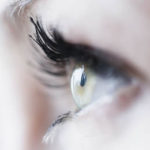High Cholesterol Effects on Eyes
High cholesterol can lead to a number of serious complications. The main ones include problems affecting cardiovascular system such as coronary heart disease, heart attack, stroke, peripheral artery disease, etc. Sometimes it can also have negative effects on eyes, leading to eye problems which some could be serious.
Actually, cholesterol is required by the body to keep functioning properly. In fact many cells and hormones in the body require it to help perform particular body functions. So you cannot live without it.
Since cholesterol cannot dissolve in the water, it requires lipoprotein to travel throughout the bloodstream. And based on this mechanism, you have two main types of cholesterol:
- LDL (low-density lipoprotein), also known as ‘bad’ cholesterol. High LDL in the blood can contribute to cause plaque, a hard-thick deposit. So when it comes to diet to lower cholesterol, LDL is your main target.
- HDL (high-density lipoprotein). It works in the opposite way to LDL. It can help carry excess LDL from the arteries back to the liver for elimination. Therefore, many times it’s also called ‘good’ cholesterol. In general, higher level of HDL is better for your overall health.
Cholesterol is naturally produced in the liver. You can also get it from foods, especially foods high in saturated fats.
The problem is when you have more cholesterol than your body needs. High levels (higher than normal) of cholesterol in the blood can pose the risk of developing plaques in your blood vessels, causing atherosclerosis (narrowing and hardening arteries).
Atherosclerosis can interfere with the circulation of blood inside the arteries. This can lead to a number of serious conditions, depending on where it occurs.
For example, if it occurs in the arteries close to the heart, your risk of heart disease increases. As the process continues, this can obstruct the blood flow and your heart will work harder than usual. As a result you will have angina or chest pain.
Atherosclerosis may end with a clogged artery, a condition in which the blood flow is seriously blocked. This can occur when the plaques rupture and form blood clots. If clogged artery occurs close to the heart, you may have a heart attack.
What else? If clogged artery occurs in the arteries close to the brain, you may have stroke. Research suggests that having adequate, normal level of HDL is important to reduce the risk of both ischemic and hemorrhagic stroke.
High cholesterol is also associated with a condition called peripheral artery disease (PAD), plaque buildups in the legs, feet, arms, and hands.
The bad effects of high cholesterol take years to develop. But some factors can accelerate the process. These include cigarette smoking, chronic high blood sugar (diabetes), high blood pressure (hypertension), poor diet, obesity, and lack of physical activity (sedentary lifestyle).
There is no early sign and symptom of the condition. Therefore, it’s recommended to check your blood cholesterol at least once every 5 years – even though if you are a healthy individual. But if you have many risk factors of the condition (such as you’re being obese, a smoker, a diabetic, poor diet, a sedentary individual, your age is greater than 45 (man) or older than 54 (woman), or if you have a family history of hypercholesterolemia), you may have to check it more frequently!
 High cholesterol is not only associated with heart diseases. It can affect lots of things in the body. A higher amount of LDL in the circulation may also trap in the blood vessels that line to the eyes, leading to a number of eye problems.
High cholesterol is not only associated with heart diseases. It can affect lots of things in the body. A higher amount of LDL in the circulation may also trap in the blood vessels that line to the eyes, leading to a number of eye problems.
Retinal vein occlusion
Retina is one of the most essential parts of the eye. It is responsible to convert images and lights into nerve signals which then send them to the brain. Retinal vein occlusion can prevent your retina from working properly.
If a vein (blood vessel that carries blood from the retina to the heart) is blockage, the retina’s ability to filter light will be affected – and your ability to see is affected, too. This is what happens in retinal vein occlusion.
Retinal vein occlusion can be a serious threat for your vision. Even the damage could be permanent (incurable). The severity of vision loss is usually dependent on which kind of vein is blocked. In general, the symptoms include:
- Blurred or decreased vision, typically in one eye. It can be sudden in onset. The treatment is necessary to prevent the problem from worsening. If left untreated, it can get worse quickly within hours or days.
- Floaters or dark sports in the affected eye. These are usually tiny clumps of material /cells floating in the eye.
- A blocked vein may cause extra pressure, and this could be painful in the eye.
This eye disorder can be attributed by different causes. The main ones are poorly-controlled high blood cholesterol and atherosclerosis. Other causes include:



